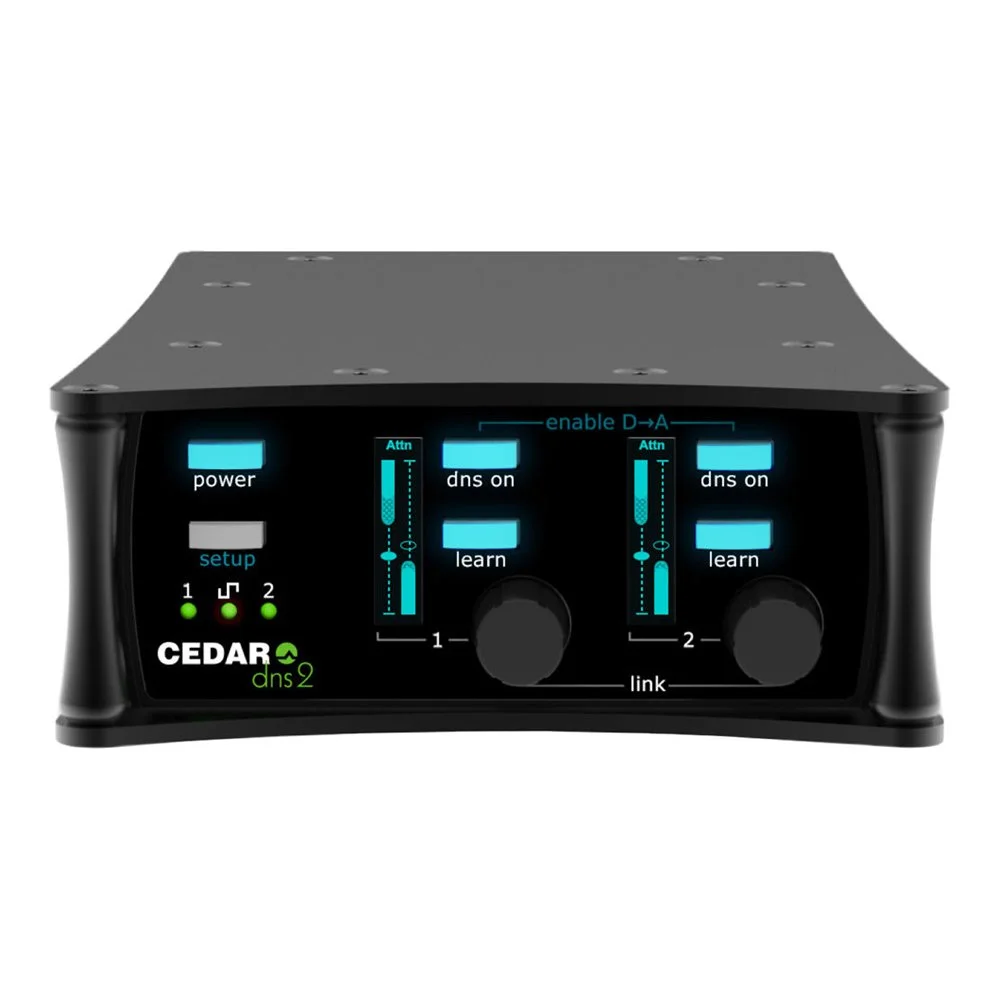CEDAR Noise Suppression
CEDAR Noise Suppression
CEDAR's dialogue noise suppression (DNS) technology eliminates traffic noise, air conditioning, wind, rain, babble and general background noise from audio signals. It will also help to compensate for unfavourable acoustic conditions and poor microphone placement, and will even suppress excessive reverberation.
-
CEDAR’s DNS2 (Dialogue Noise Suppressor 2) is best suited to professional post‑production and location sound cleanup where you need intelligent noise reduction on dialogue tracks.
Despite being so small and light that you can slip it inside your pocket or equipment bag, the DNS 2 offers analogue line and microphone inputs, an AES3/AES11 digital input, and both analogue and digital outputs. This increases its flexibility even further, and its 12V power input means that you can use it in the middle of a field as easily as in the studio or the edit suite.
-
Small, light and portable
A unique DNS algorithm with super-fast setup and control
Analogue (mic/line) and digital I/O
12V power
Two linkable channels of CEDAR DNS
Fully automatic processing in Learn mode
Floating point processor, 2.4 GFLOP/s, 40-bit resolution
Digital input and output (AES3)

